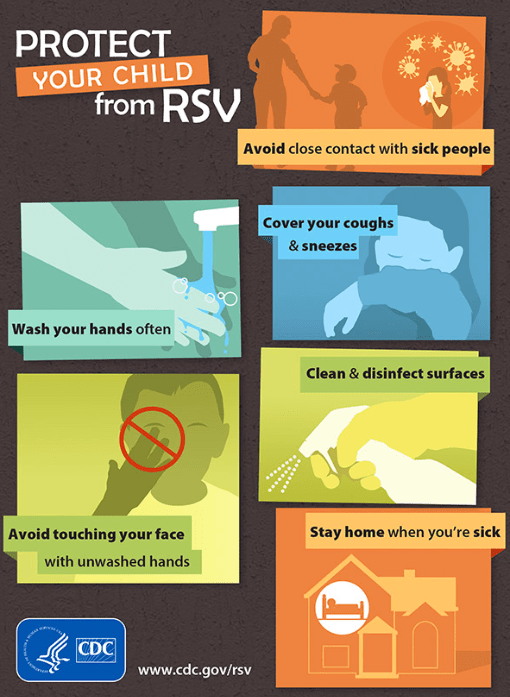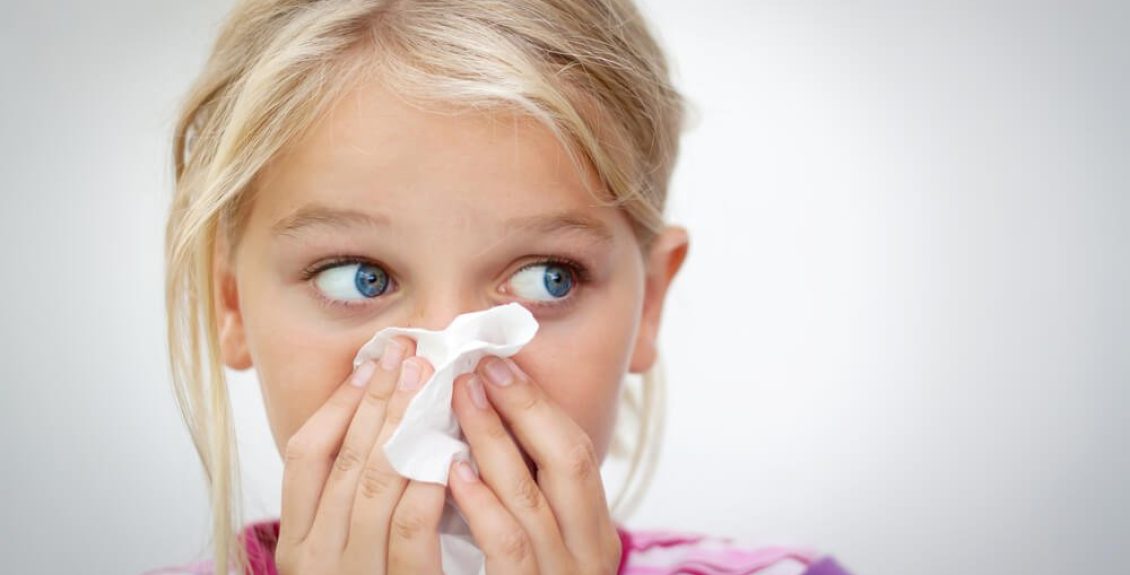Respiratory syncytial virus (RSV) is a common virus that causes mild, common cold-like symptoms. Most people will recover in one to two weeks, but for some, it can be very serious, especially in infants and the elderly. RSV enters your body through the eyes, nose, or mouth by infected respiratory droplets spread through the air easily. Direct contact such as shaking hands with an exposed person can also transmit this virus.
RSV infects the respiratory tract and the lungs. It is so common in the US that nearly all children get infected by age 2. In this article, we explore the RSV virus from the symptoms to the methods of treatment and what to do if a child has RSV in Idaho Falls.
Symptoms Of RSV
After exposure, your child may take about four to six days for the signs and symptoms to appear. The symptoms may include fatigue, irritability, a runny or congested nose, and breathing difficulties. In severe cases, signs can be a wheezing or wet cough. At this stage, the infection can cause bronchiolitis or pneumonia after spreading to the lower respiratory tract and causing inflammation of the airway passages going to the lungs. Most infants have symptoms including:
- A runny or congested nose
- Sore throat
- Dry cough
- Sneezing
- Low-grade fever
- Headache
- Irritability and Red itchy eyes
These symptoms will clear up in a few days, either on their own or with home remedies. Young infants may have fatigue, irritability, and breathing difficulties. While only a small percentage of infants need to be hospitalized due to RSV, it’s important to be aware of severe symptoms including:
- Rapid, shallow, and short breathing. The infant will struggle to breathe with their chest skin and muscles, pulling inward with each breath.
- Cough
- Lethargy or unusual tiredness
- Poor feeding
With these signs in infants, the infection can be life-threatening and may require immediate medical attention.
People That Are Most Likely To Get RSV
Anyone can get RSV when exposed to it, and most people will recover in less than 14 days. However, how risky RSV gets depends on whom the infection got and the actions that are taken. RSV can worsen chronic health problems, e.g., asthma and congestive heart failure. These patients may experience attacks triggered by RSV. Infants are more likely to develop serious complications once exposed to RSV.
RSV season occurs annually in the US during winter, fall, and spring. Each year, an estimated 58,000 children below 5 years get hospitalized with RSV infections. Among these hospitalizations, 100 to 500 children die.
Diagnosing RSV
Mild RSV and common cold symptoms are alike hence, we rarely require testing to identify RSV infection. We may also identify RSV based on physical exam, time of the year, and your child’s medical history. In such cases, we may not want to perform lab tests to confirm the diagnosis. The most common test is a blood sample or a mouth swab to look for viruses and check your white blood cell counts.
In severe cases, we may require additional testing to look for any further damage. We do X-rays or CT scan imaging tests to check for any lung complications.
How To Treat RSV In Idaho Falls
 RSV treatment involves supportive care and hospital care. Supportive care aims at making your child comfortable, using plenty of fluids and over-the-counter medication recommended by a doctor. These medicines may include acetaminophen, but never use aspirin fever reducers on infants. You can also keep the air moist using cool mist vaporizers to make breathing easy.
RSV treatment involves supportive care and hospital care. Supportive care aims at making your child comfortable, using plenty of fluids and over-the-counter medication recommended by a doctor. These medicines may include acetaminophen, but never use aspirin fever reducers on infants. You can also keep the air moist using cool mist vaporizers to make breathing easy.
Hospital care comes when severe symptoms show and your doctor recommends a hospital stay for extra care. The treatment there may include humidified oxygen, intravenous (IV) fluids, and breathing machines in rare cases. You may use suctioning or nasal saline drops to clear a child’s stuffy nose and keep a close watch on the patient for any change in symptoms. However mild the symptoms may seem, what to do if a child has RSV in Idaho Falls is seek medical attention as early as possible.
RSV Transmission
Once you touch an exposed surface, breathe air with the virus, or get infected droplets into your eye, you also get infected. RSV patients are contagious usually for 3 to 8 days, but for infants, they can spread the virus even when the symptoms stop showing. This can go for as long as 4 weeks. On hard surfaces, RSV can survive for many hours compared to soft surfaces, such as hands and tissues. It is therefore important to disinfect hard surfaces regularly when you have kids around.
Preventing RSV
Scientists are still working to develop RSV vaccines, but they are yet to get there. There is a medicine known as palivizumab that helps protect some infants at high risk of RSV disease. We usually give this medicine in monthly injections during RSV seasons to young children and premature infants with lung and heart conditions. The only thing to do for your infant, usually during RSV seasons, is to take preventive precautions, such as:
Washing your hands often
Make sure you wash your hands with running water and soap for at least 20 seconds frequently. If your young children can, help them too to clean their hands or use an alcohol-based sanitizer. When your hands have germs and viruses, you can easily get them into your body through the mouth, nose, or eyes.
Avoiding close contact with sick people
Keep your infants out of contact with people showing cold-like systems. Don’t share cups or eating utensils with the exposed, and avoid direct contact, such as kissing.
Avoiding touching your face
Research has shown that one may touch their face an average of 23 times an hour. If your hands have germs and viruses, this touching may lead to an infection.
Clean and disinfect surfaces
You should disinfect or clean objects and surfaces that people usually touch, such as doorknobs, toys, and mobile devices. These surfaces and objects usually have germs and viruses on their hands and may act as a medium of transfer.
Cover your coughs and sneezes
When you cough, you expose your saliva droplets to the air. If you have RSV, you put your infants at risk of being exposed to the virus by breathing it in. Remember, you might have RSV as an adult and show no signs, as your immune system is strong. Use a tissue to cover your sneezes or coughs, then dispose of it in the trash.
Just 4 Kids Urgent Care
Is your child showing any of the symptoms mentioned above and you’re worried it might be an RSV infection? Visit our branch that treats RSV in Idaho Falls. 3320 So. 25th East Idaho Falls, ID 83404
